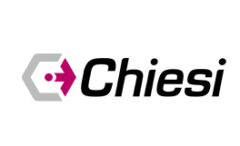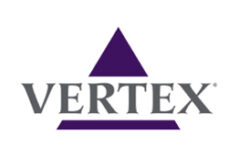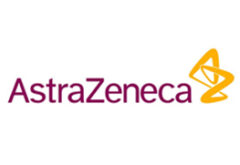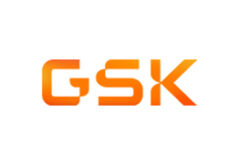Sponsored Symposia
Sunday, 24 March 2024

Exploration of Barriers and Opportunities to Attain On-treatment Clinical Remission for Paediatric and Adult Patients with Severe Uncontrolled Asthma
Time: 7.15 -8.15am (breakfast served at 6.45am)
Speakers: Prof. John Upham (Chair)
Prof. Liam Heaney and Dr. Geshani Jayasuriya - Practical guidance for accessing opportunities and barriers to the attainment of on-treatment clinical remission for paediatric and adult severe uncontrolled asthma
Synopsis: Although the term remission is rarely used in the current management of asthma, it is well defined in other chronic inflammatory conditions such as rheumatoid arthritis, Crohn’s disease, ulcerative colitis and systemic lupus erythematosus. Remission in adults with asthma is a relatively new and less researched area that has, however, recently gained attention. Since remission is possible as part of the natural history of the disease (e.g., childhood asthma remission), it might also be possible to induce remission with treatments. Developing or identifying treatments that can induce remission in asthma will be a paradigm shift in the asthma management goals.

Call to action: impact of oscillometry in addressing small airways disease
Speakers: Professor Dave Singh, Professor Bruce Thompson, Dr Li Ping Chung, Associate Professor Claude Farah, Professor Greg King
Time: 5.30 – 7.00pm (food served at 5.00pm)
Synopsis: Small airways disease (SAD) is a fundamental concept in both asthma and COPD, unequivocally linked to risk of exacerbations, symptom control, airway hyperresponsiveness, spirometric abnormalities and inflammation. SAD is evident across all severities in both asthma and COPD, present many years prior to spirometric alterations and amplified in more severe disease.
As such, interest in SAD as a treatable trait has expanded with the ability to assess SAD being key to identifying early stages and distinct phenotypes in both asthma and COPD. Combining validated small airways measures such as oscillometry with the current industry standard spirometry is an innovative approach in obtaining valuable information which can improve disease diagnosis, management and identify phenotypes currently missed by spirometry. This addresses a current unmet need and advances the future of healthcare by improving patient centred outcomes through individualised targeted management approaches.
Monday, 25 March 2024

Conversation with CF experts on treating pre-school children with CFTR modulators: What have we learnt so far?
Time: 7.15 -8.15am (breakfast served at 6.45am)
Speakers: Associate Professor Tonia Douglas, Professor Claire Wainwright, Professor Adam Jaffe, Professor André Schultz
Synopsis: The first CFTR (cystic fibrosis transmembrane conductance regulator) modulator, KALYDECO® (ivacaftor), was TGA approved in July 2013. Since then, multiple CFTR modulators have been approved: ORKAMBI® (lumacaftor and ivacaftor), SYMDEKO® (tezacaftor/ivacaftor and ivacaftor) and TRIKAFTA® (elexacaftor/tezacaftor/ivacaftor and ivacaftor). With the demonstration of safety and efficacy, these modulators have been expanded to broader and younger age groups.
On 7 Feb 2024, TRIKAFTA® was approved by the TGA for patients with cystic fibrosis (CF) aged 2 years and older with at least one F508del mutation in the cystic fibrosis transmembrane conductance regulator (CFTR) gene.
This one-hour educational meeting will be conducted in panel discussion format where Australian CF experts will share their clinical experience, discuss how they apply their learnings to treating younger patients as soon as treatment is available and address topical questions related to initiating CFTR modulators in pre-school children.

Lung Cancer. The evolving role of the Respiratory Physician
Speakers: Professor Lucy Morgan (chair), Professor Fraser Brims, Dr Daniel Wang
Time: 7.15 -8.15am (breakfast served at 6.45am)
Synopsis: Respiratory Physicians are pivotal in the initial testing, diagnosis and early management of people with lung cancer. They are typically the first specialist that a patient is referred to and they play a critical role in the lung cancer multi-disciplinary management team (MDT).
Advances in the diagnosis and management of lung cancer, together with the prospect of a Government-funded national lung cancer screening program slated for mid-2025, makes lung cancer a key interest area for Respiratory Physicians. In this symposium, the speakers will focus on the evolving role of Respiratory Physicians in early-stage lung cancer.
Professor Fraser Brims will discuss practical aspects to managing lung nodules. Dr Daniel Wang will cover how to set up a rapid access service utilizing local resources, development of new capabilities, reduce variation in clinical practice with a referral and triage criteria, and how to improve coordination and collaboration between services. A panel discussion including chairperson Professor Lucy Morgan will then discuss the lung cancer MDT and how to improve access to quality of care.

COPD Management – Challenging the status quo with a new perspective
Speakers: A/Prof Benjamin Kwan (Chair), Dr Richard Russell, Prof Atifur Rahman, Dr Shyamali Dharmage, Dr Anita Sharma
Time: 5.30 – 7.00pm (food served at 5.00pm)
Synopsis: COPD is the number one cause of potentially preventable hospital admissions and is a leading cause of death in Australia.1 In 2022, COPD was the 4th leading cause of total disease burden (DALY), accounting for 3.7% of total DALY, and in 2021, COPD was the leading underlying cause of death in Australia, representing 4.1% of all deaths.2
The long term goals of COPD management are exacerbation risk reduction and symptom control. The GOLD 2023 strategy update specifically notes mortality risk reduction is an achievable treatment goal, alongside recognising the importance of assessing the impact of symptoms and future risk for an individual patient in deciding appropriate and individualised treatments that reflect the patient’s own goals and needs. The overall objective is to reduce the burden to the patient, reduce the risk of serious exacerbations, disease progression and the risk of COPD-related death.2 In 2023, GOLD published a briefing update for practicing cardiologists recognising the burden of COPD exacerbations on cardiovascular outcomes and the need for optimal treatment of COPD patients.
Tuesday, 26 March 2024

Towards RSV Illness Prevention: An Australian Perspective
Speakers: Dr Cedric "Jamie" Rutland, Professor Christine Jenkins, Dr Kerry Hancock
Time: 7.15 -8.15am (breakfast served at 6.45am)
Synopsis: After over 60 years of research, vaccines against RSV-related lower respiratory tract disease (LRTD) mark a new era in health care and is a major step towards protecting older adults*. Older adults have higher rates of serious complications with RSV infection,^1-3 partly due to age-related decline in immunity reducing an effective immune response.4-6 This symposium will focus on the burden of RSV and prevention of lower respiratory tract disease caused by RSV in adults aged 60 years and over.
^RSV-associated hospitalisation1,2 and mortality3 rates increase with age.
References:
1. Saravanos GL et al. Med J Aust 2019;210(10):447–53.
2. Branche AR et al. Clin Infect Dis 2022;74(6):1004–11.
3. Tseng HF et al. J Infect Dis 2020;222(8):1298–1310.
4. Kaler J et al. Cureus 2023;15(3):e36342.
5. Ascough S et al. Lancet Healthy Longev 2022;3(6):e405–16.
6. Stephens LM et al. Vaccines (Basel) 2021;9(6):624.

The changing landscape of cystic fibrosis: Overcoming adherence challenges in the post modulator era
Time: 7.15 -8.15am (breakfast served at 6.45am)
Speakers: Professor Phil Robinson (Chair), Dr Judith Morton, Kate Johnson, Dr Maggie Harrigan
Synopsis: While advances in cystic fibrosis (CF) treatments have led to improved outcomes for people with CF, treatment regimens remain complex, time-consuming and burdensome.¹ ² Without optimal adherence, people with CF may not achieve the treatment benefits they expect. ³
Best practice sharing in how the CF medical community are supporting patients to manage therapy throughout the different stages in life is critical to optimize clinical outcomes.
References: 1. Bishay LC et al. Adolesc Health Med Ther 2016;7:117-24; 2. Abraham O et al. J Am Pharma Assoc 2021;61:547-54. 3. Olivereau L et al. J Cyst Fibros 2020; 19:402-6.
Key Dates
TSANZSRS ASM 2025
21 - 25 March 2025
Adelaide Convention Centre
